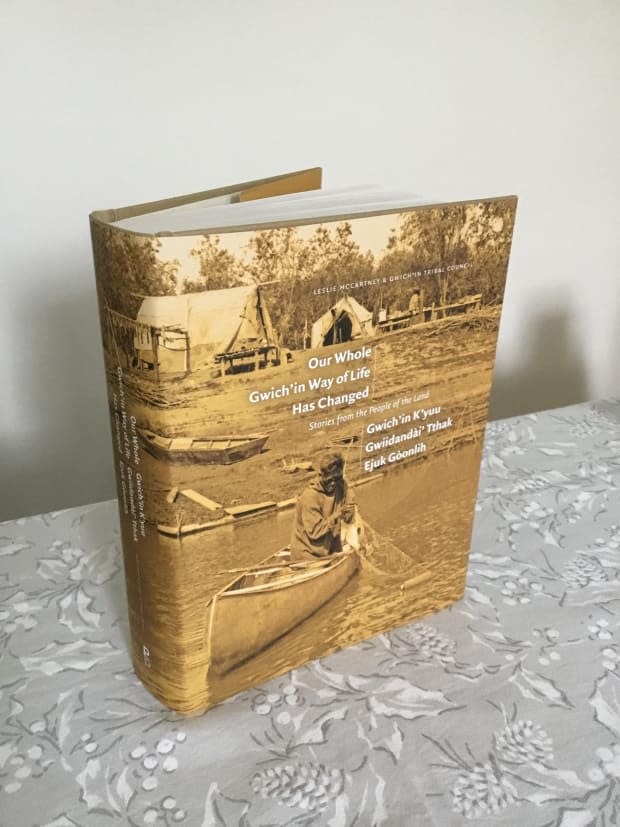New book documents stories of Gwich'in elders
A new book that documents the stories of Gwich'in elders to help bridge the divide between the generations and record a collective history of the Gwich'in people has just been published by the Gwich'in Tribal Council.
The book, Our Whole Gwich'in Way of Life has Changed is a compilation of Gwich'in elders' stories from the late '90s and early 2000s.
"It's stories from the people of the land," explained Sharon Snowshoe, director of the Gwich'in Tribal Council's Department of Cultural Heritage.
"It's the elders telling their own life stories. It talks about residential school. You know, our elders like to tell stories to us, so there's a bit of humour in it, too."

Depth of interviews 'overwhelming'
Snowshoe said that in 1998, a group led by Leslie McCartney, then a master student in cultural anthropology who was working for the Gwich'in Social and Cultural Institute, and some community members and youth, set out to interview and record the stories of elders in the four Gwich'in communities.
In consultation with elders, McCartney and her team recorded the oral histories of 23 Gwich'in elders, 17 women and six men.
"The richness, depth of the interviews was unexpected and overwhelming," said Snowshoe.
"Most of the elders interviewed were the last generation where Gwich'in was their mother tongue," said Snowshoe.

She said the Gwich'in language is one of the most endangered languages in Canada, and the elders recorded were encouraged to tell their stories in the Gwich'in language so it would be preserved.
She added that the stories "also speak to the Gwich'in principles of elders playing a crucial role as teachers of traditional knowledge, history, language and culture."
As well, she said the principles are based on a special spiritual relationship between the Gwich'in and the land.
Since the council can't have a book launch, Snowshoe sent copies of the book to schools in the Gwich'in area as well as to designated Gwich'in organizations for distribution.
Only one elder that was interviewed for the book is still alive so Snowshoe sent a letter and a copy of the book to the oldest family member of the elders who are in the book.
The book, which was published by University of Alberta Press, is also available online.

 Yahoo Movies
Yahoo Movies 